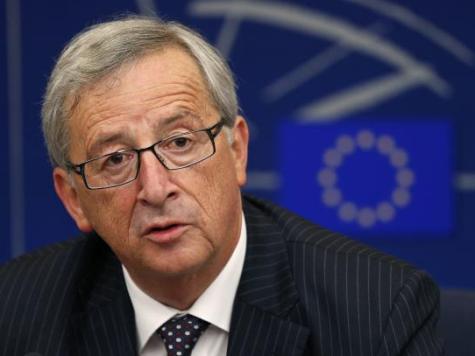The most senior judge in the EU has told Commission President Jean Claude Juncker that his job is to “defeat Euroscepticism”.
Vassilios Skouris, the President of the Court of Justice, made his comments at an event which was supposed to celebrate the political independence of the European Commission, the Telegraph reported.
The Greek lawyer told the head of the EU’s legislating arm that his “key task” was “to prevent the fruits of European integration being trampled in the dust.”
“You are taking up office during the worst financial and economic crisis that Europe has suffered at a time when the European ideal is beset by criticism from Eurosceptic circles,” Mr Skouris said.
The comments were met with hostility from leading UK Eurosceptics who have for years raised concerns at the power the ECJ has over UK law.
As the highest court in the land, it has the power to override national governments and change national laws which it views as in breach of European legislation, such as denying the vote to prisoners.
Conservative MEP Dan Hannan said: “We’ve known for a long time that Euro-judges make things up as they go along, that they’re prepared to disregard the plain text of the treaties in pursuit of deeper integration. But for someone to come out and say it so blatantly shows how confident they now are.”
And UKIP leader Nigel Farage, whose party won the European Elections in the UK, responded to the comments, accusing the judge of pursuing an “aggressive” political agenda hostile to liberal democracies.
“The ECJ is an aggressive, politicised court with a mission to expand the powers of the EU and crush national democracy,” he said.
“When he says the ‘fruits of European integration’ – does he mean the poverty and unemployment that the euro has engendered for millions?”
The speech was at a ceremony in Luxembourg where the new commissioners made a “solemn undertaking” to be “completely independent in carrying out their duties”.
Mr Juncker started his new job in November after nineteen years as the Prime Minister of Luxembourg. But his short tenure has already been mired in scandal as details of tax arrangements were published, compromising his position in an organisation which views tax competition as negative and “a race to the bottom”.
The ‘LuxLeaks’ scandal, as it became known, showed that the Duchy had organised preferential fiscal arrangements for multinational companies if they were based there. These include Pepsi, Disney and IKEA.
After avoiding being censured by MEPs who say his involvement in the dealings made him unsuitable for high highly paid position, he now faces new problems as new information has been released.
The socialists in the European Parliament, which includes the Labour Party, have even written an open letter criticising what they call ‘unfair tax practises’ and say Mr Juncker risks losing their support. Should this happen, the downfall of the Juncker Commission looks increasingly likely and would be very embarrassing and damaging for the EU.
In the letter, the group urges the Commission to make “targeted measures to tackle aggressive corporation tax planning and tax avoidance”.
The group’s President, Gianni Pitella, told a press conference: “#LuxLeaks II has revealed once again the depth of this scandal. It shows there is a scandalously deep chasm which can only be fixed by genuine, practical legislative changes.”
“The European Commission and President Juncker must make tax evasion a top priority and come up with wide-ranging and effective proposals against tax havens and tax avoidance in the first six months of 2015. Otherwise, the S&D Group is ready to withdraw its support for the Commission. We have always stressed that we did not sign a blank cheque for Juncker. Now, Juncker himself has to demonstrate he deserves our trust and backing.”
While Eurosceptics may take pleasure in the uncomfortable position Mr Juncker finds himself in, including Prime Minister Cameron who openly opposed his appointment as the Commission chief, there are many in the organisation who may use it as an opportunity for further fiscal integration and legislation from Brussels.

COMMENTS
Please let us know if you're having issues with commenting.